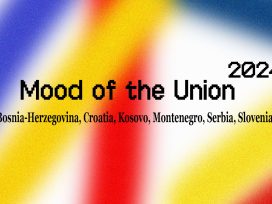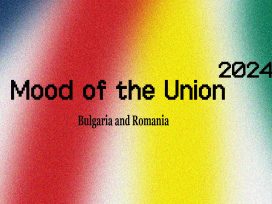In our last newsletter we drew your attention to a debate published in Eurozine between the political scientists John Keane and James Miller. The exchange can be described as a clash between categorically different understandings of democracy.
In his article ‘How democracies die, fast and slow’, Keane warned that ‘ballots can be used to ruin democracy just as effectively as bullets’ – and that a democratically elected populist government would typically abolish free and fair elections, an independent judiciary and the free press within a decade.
‘The rhetoric,’ wrote Keane, ‘sounds and feels quintessentially democratic. Yet today’s specialists in the arts of political seduction of the disaffected are false friends of democracy.’
All very well, wrote Miller in response, but it is easy to dismiss those whose demands one dislikes as demagogues. Are they not rather creatures of modern democracy’s frustration of ‘anyone hoping to play a more direct role in political decision making’?
Miller’s reductive concept of democracy as ‘people power’, Keane replies, ignores ‘the ways the democratic imaginary has substantially changed several times in its history.’ Democracy now means ‘much more than free and fair elections and public assemblies. It’s the non-stop, unending process of people and their chosen and trusted representatives warding off abusive power.’
To extend that principle to the ‘biosphere’ is not to confuse democracy with conservationism. On the contrary, writes Keane: it is to ‘redefine democracy as a precious mode of power-sharing in which people and their habitats are given equal consideration and offered equal chances of protecting themselves against the predators now intent on ruining life on our planet’.
A form of democide one might add to Keane’s list is death by stalemate. On 2 April, Bulgarians will go to the polls for the fifth time in two years. Caught in permanent election mode, the EU and NATO member is drifting ever further into the Russian sphere of influence, as Rumena Filipova writes.
Meanwhile, turnout is below forty per cent, with people increasingly believing that a meaningful choice does not exist. ‘Solving this conundrum requires reinvigorating democracy in ways that go beyond elections,’ argues the political analyst.
Cultural divisions are also being exploited by pro-Russian forces in neighbouring North Macedonia, writes journalist Jovan Gjorgovski in an article first published by New Eastern Europe. Despite North Macedonia’s own experience of having its identity denied, the government’s pro-Ukraine line (N. Macedonia has donated almost all its tanks) is by no means universally popular.
But decreasing support for the EU and an increasing tilt towards Serbia ‘are not only the result of interference from Moscow,’ writes Gjorgovski. Also to blame is ‘Brussels’ failure to help resolve the issue with Bulgaria and fast-track the accession negotiations’.
Also to look out for: Marta Havryshko’s harrowing report on the systematic use of rape and other forms of sexual violence by the Russian military in Ukraine, first published by Spilne/Commons (warning: this text contains descriptions of sexual crimes); and Nergis Canefe on why the safeguards of national interest built into international law mean that Russia cannot be brought to justice for the crime of aggression until a fundamental process of legal reform takes place.
Finally, we continue our occasional series on the intellectual history of central and eastern Europe with Enda O’Doherty’s profile of the Hungarian-French historian François (Ferenc) Fejtő (1909–2008), first published in Dublin Review of Books. After fleeing fascist Hungary in 1938, the committed Social Democrat established himself as a Parisian intellectual. Alongside his journalism, Fejtő published an important work (original in French with numerous translations) on the ‘people’s democracies’ of central and eastern Europe since Stalin (the second volume of which appeared in 1969).
As O’Doherty notes, Fejtő had a particularly close relationship with the journal Esprit. For interested readers: in 2006, 50 years after the suppression of the Hungarian Revolution, Esprit and Eurozine published Fejtő’s preface to the Italian translation of his book La Tragédie hongroise.






